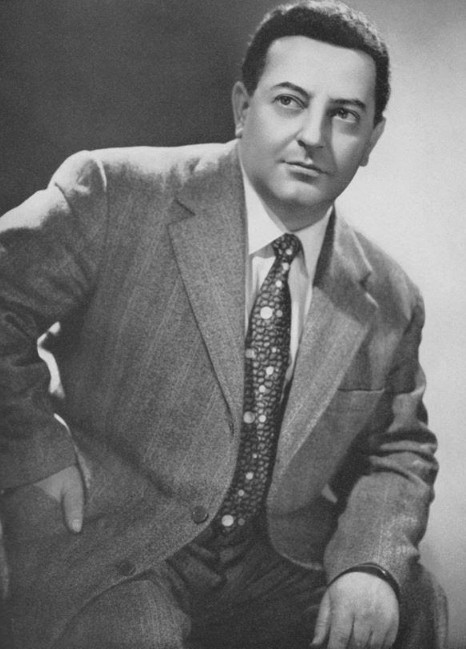Braschi studied voice in Rome in any case (some say with Morini, others say with Manfredo
Polverosi) and made his debut in 1934 in Bari, as Don Alvaro. For many years, he
sang throughout Italy, but usually at minor theaters.
Only after WWII, his career picked up steam: Teatro San Carlo in Naples, Arena di Verona, Teatro dell'Opera in Rome, Trieste,
Maggio Musicale, Palermo... but also abroad, particularly in France: Lyon, Bordeaux (1959), Marseille (1957–63), Nice,
Lille (where he sang Manrico in
1955 in Italian in midst of a French-language performance, and he did the same as Éléazar in 1956 and as Turiddu
in 1957, but when repeating Rachel, quand du Seigneur, he did it in French). Repeating was something he did regularly
since his sturdy voice enabled him to do so; Manrico was his most important role, and he often sang Di quella pira
even three consecutive times, always in pitch; not only in the just mentioned Lille production, but also on many occasions in
Italy.
Further guest appearances took him to Brussels, Graz, Vienna (not to the Staatsoper, so it must have been the Volksoper),
London, Madrid, Barcelona, Geneva... but generally, his career was limited to secondary theaters, which is surprising, given
his excellent voice and his remarkable reliability (he was in considerable demand as a substitute for sick colleagues, because
obviously, he was himself never sick and could always sing). His stage appearance obviously left a lot to be desired; not only
was he extremely short, but reportedly also devoid of any acting abilities or ambitions.
He sang into the late 1960s.
Reference 1,
reference 2, reference 3: Kutsch & Riemens,
reference 4
Picture source
